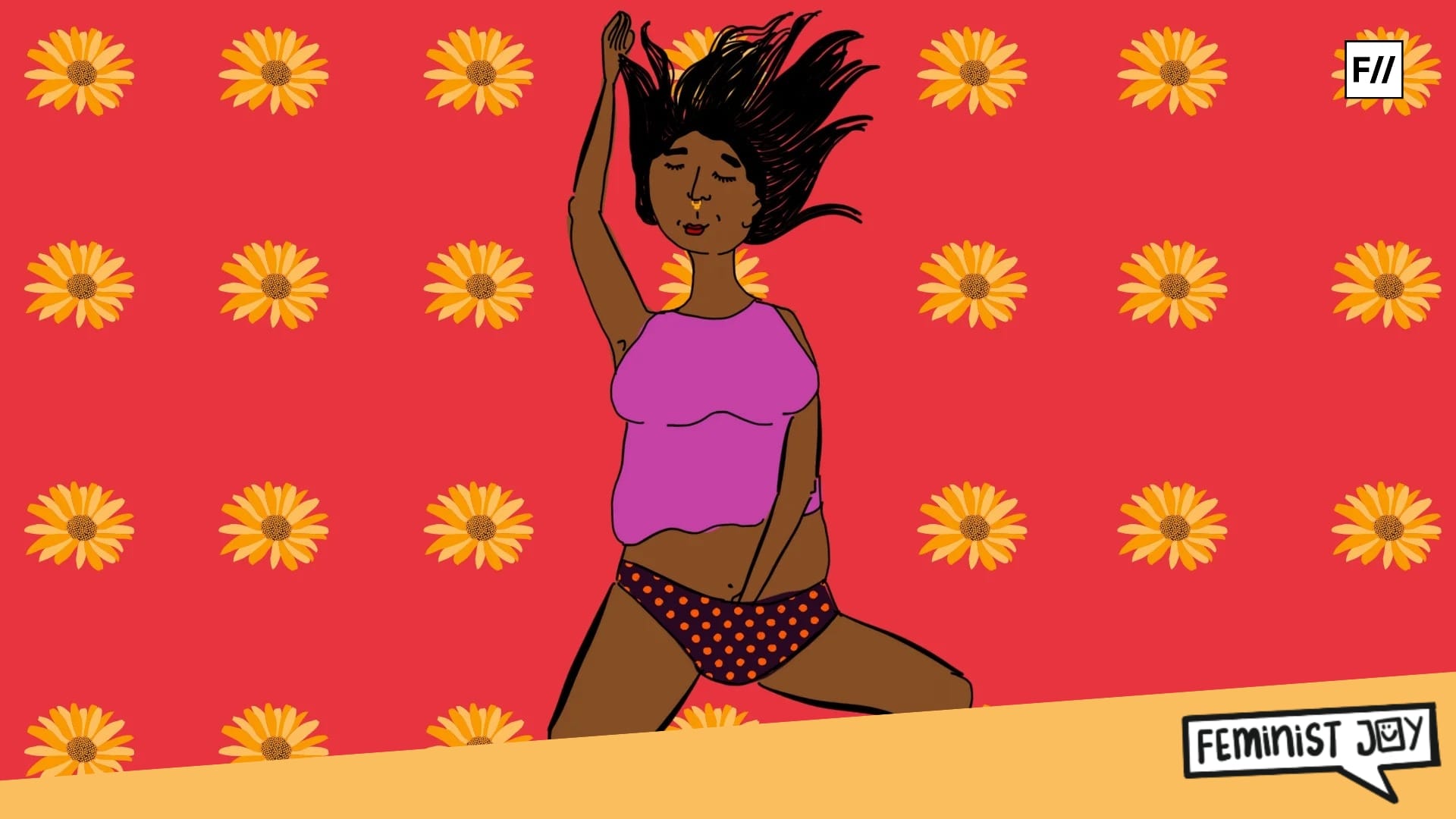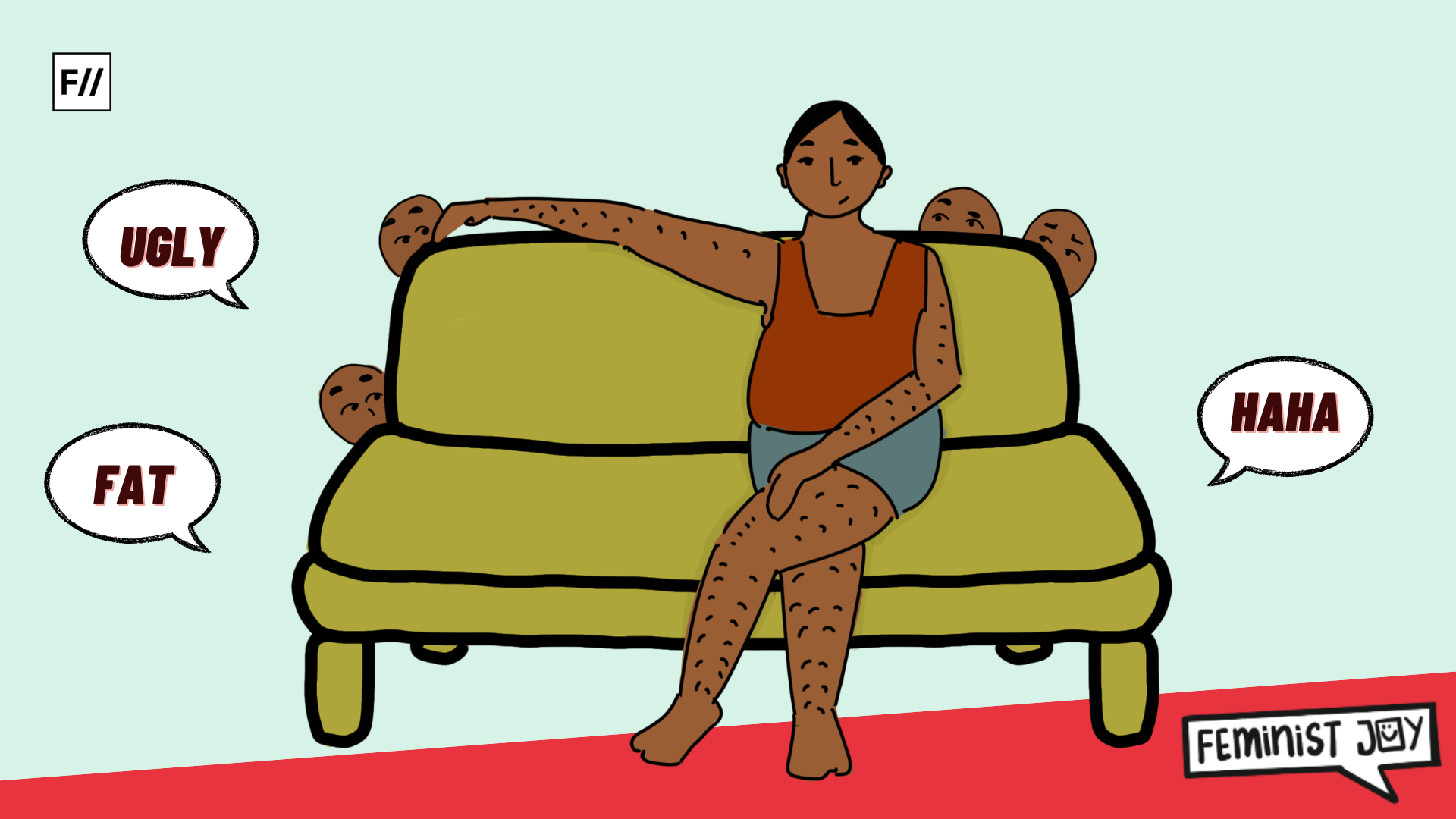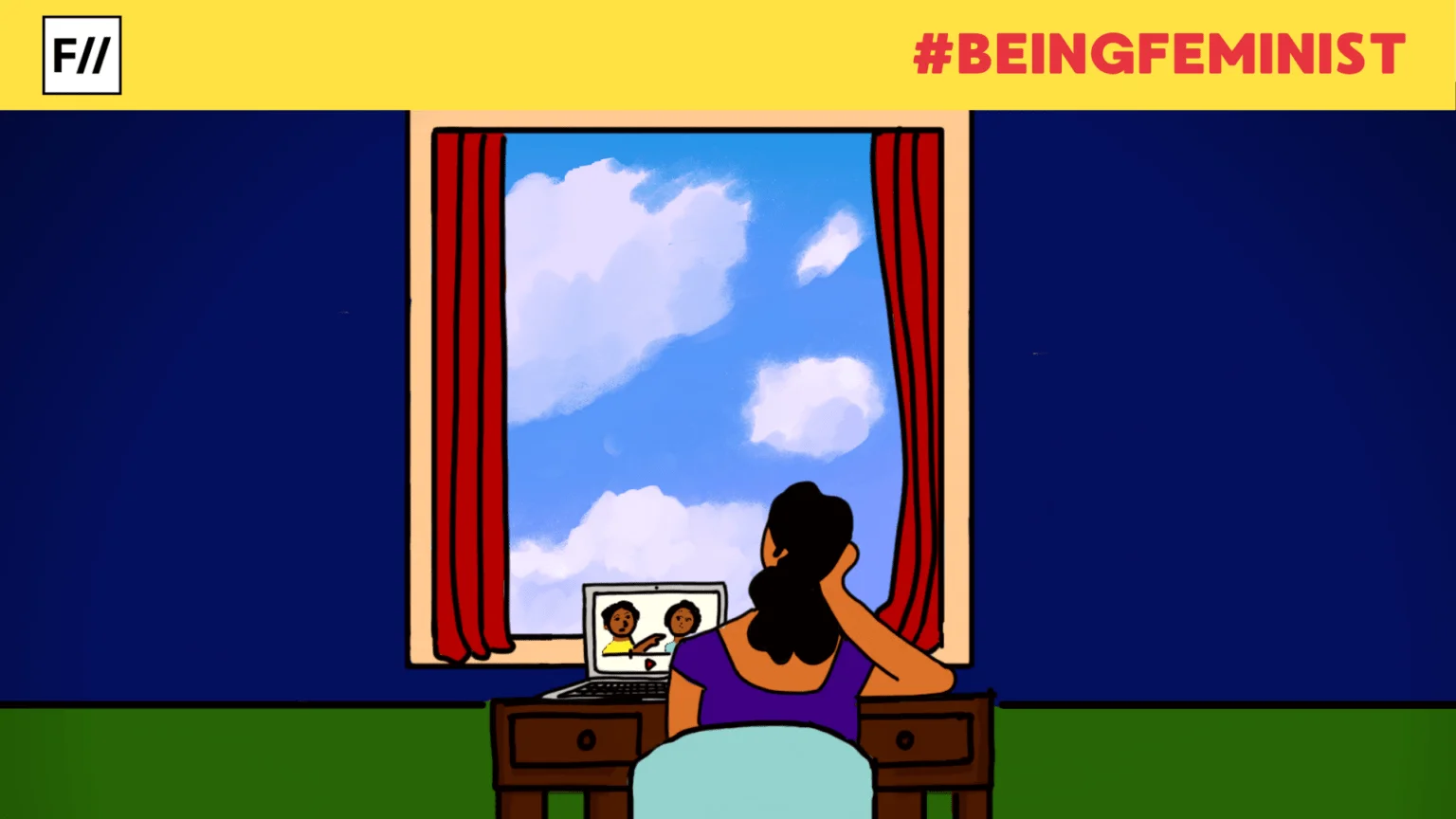There’s something about whispering the word sex with your girlfriends that feels like plotting a revolution.
‘Did you do it?‘
‘How was it?‘
‘Wait… is this normal?‘
‘I literally googled ‘can you get pregnant if he just…’‘
And suddenly, the room erupts with laughter, reassurance, horror stories, myths, giggles, and so much honesty.
Growing up, sex was always somewhere behind a wall—discussed in code, dismissed as “bad,” or simply never mentioned. The silence was loud, and it made curiosity feel shameful. In biology class, we skipped the chapter. At home, there were no talks, just a kind of collective looking-away. Bollywood movies taught us that kissing meant the lights would dim and flowers would touch—but no one told us about consent, pleasure, or even what we were supposed to feel.
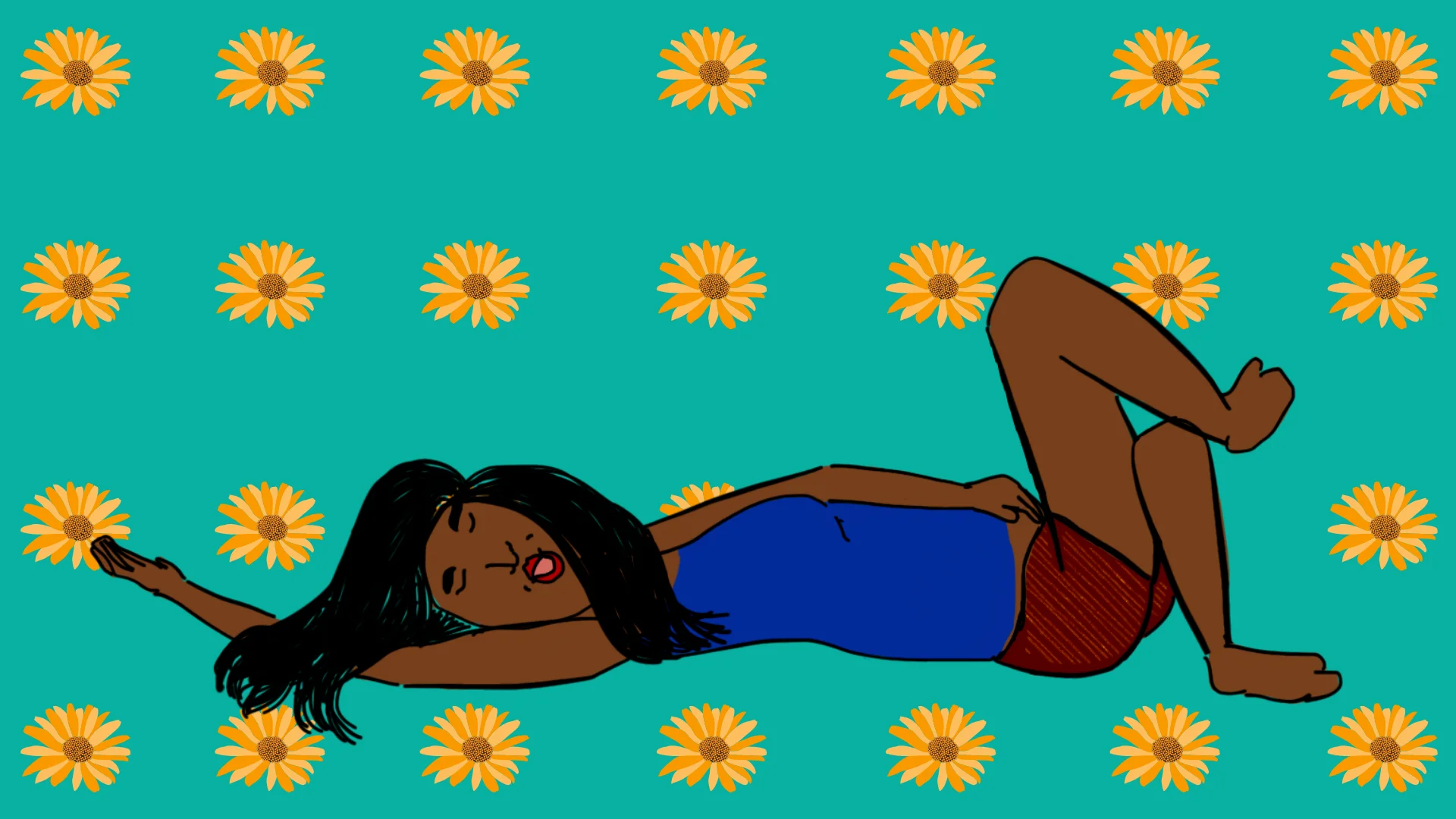
Growing up, sex wasn’t even a full word—it was a syllable followed by a silence. A look. A shift in body language. The channel changed. The air tensed. The moment passed. And the lesson was learnt: This is not something you ask about, talk about, or even think about too much. Especially if you’re a girl.
And in a world where the onus of fulfilling men’s needs, especially sexual, falls on women, it is really hard to think about it in a pleasurable manner. Our earliest exposures were through half-understood film scenes, ad jingles that suddenly got awkward, and hushed gossip about “that girl” from another school. Formal sex education? Non-existent. Conversations with adults? Definitely not. The only thing louder than our curiosity was the societal silence surrounding it.
But that silence never stood a chance against a group chat with my girls.
The first few “sex talks” we had weren’t even about sex—they were disguised in jokes, memes, or ‘this might be TMI but…‘, ‘I wanted to tell you something, but please don’t judge‘ disclaimers.
The thing is—when girls talk about sex, especially in cultures that systematically deny them sexual agency, it’s never just about sex. It’s about consent, confusion, desire, guilt, safety, awkwardness, and most of all—selfhood and pleasure.
The thing is—when girls talk about sex, especially in cultures that systematically deny them sexual agency, it’s never just about sex.
When boys talk about sex, they’re told it’s natural. When us girls do, we’re told it’s dangerous.
We talk about it all—
The funny:
Accidentally sending a flirty text to the wrong group chat. Wondering if “performance anxiety” can apply to you too. Talking about condoms, lubes, orgasms and if he’s big enough, Oops!
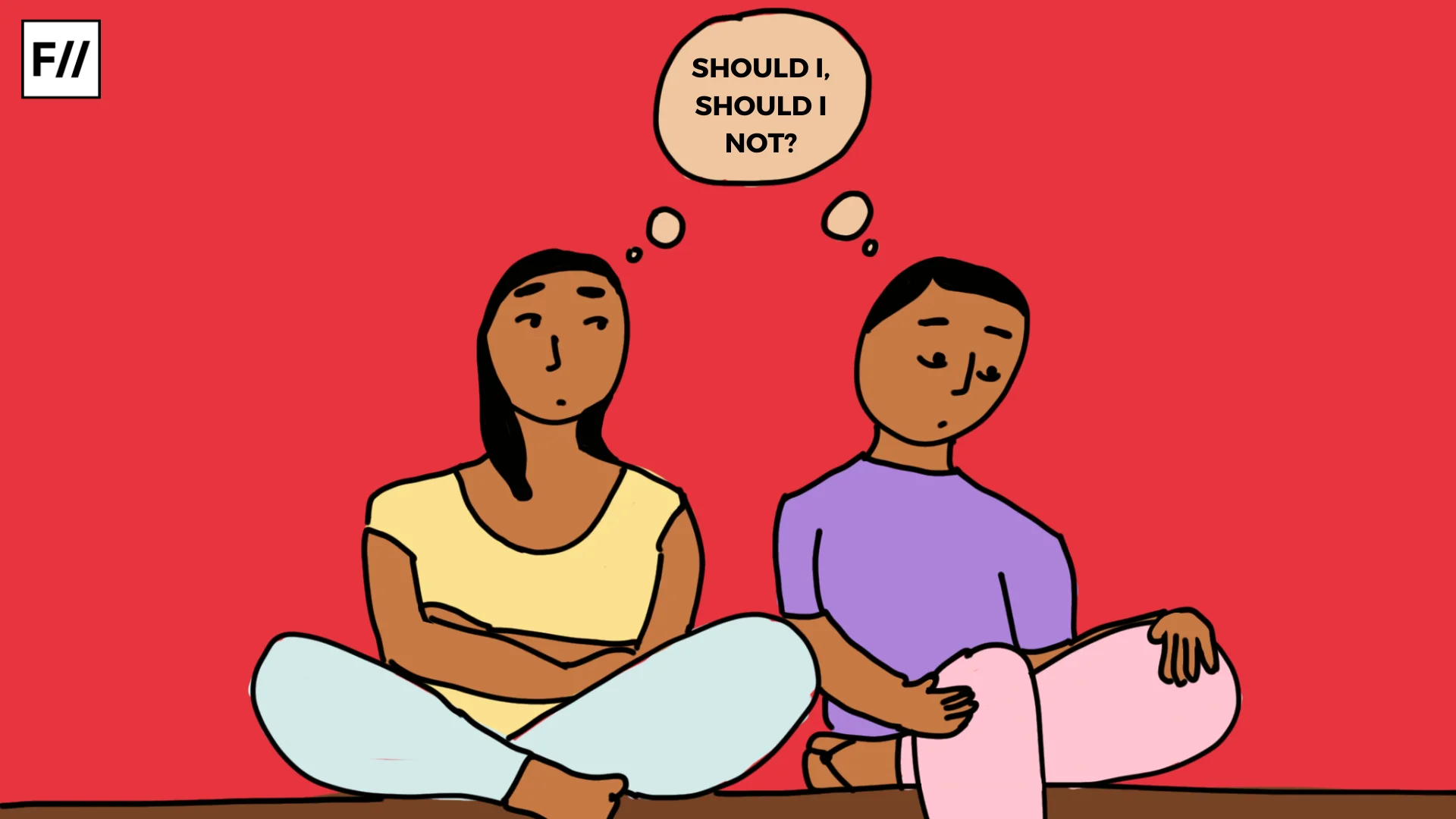
The terrifying:
Not knowing if you were actually okay with it, did it pain? Feeling pressured to say yes when you wanted to say no. Wondering if that ache is a UTI, guilt, or both.
The joyful:
The first time it felt right, felt pleasurable in all the right places. The moment you realise you’re allowed to feel pleasure. The support when your friends scream ‘YES, QUEEN‘ with a loud high five after you finally dumped the guy who made you feel small.
These talks are full of feminist joy because they centre us: our curiosity, our desires, our hesitations and our healing.
They reclaim a subject that has been historically policed, hidden, and defined for us. We aren’t speaking as daughters or girlfriends or “good girls.” We’re speaking as humans trying to understand ourselves outside of shame.
We aren’t speaking as daughters or girlfriends or “good girls.” We’re speaking as humans trying to understand ourselves outside of shame.
And it’s so funny, because no one prepped us for this. Nobody sat us down and said, ‘Hey, you might cry after your first time, and that’s okay even if it wasn’t bad.’ or ‘Here’s how to figure out what gives you pleasure instead of worrying about whether you looked hot.’ Or even, ‘Pleasure is not supposed to be painful.’ Or just simply, ‘Foreplay is a big part of sex, you are allowed to explore.’
We figured it out through whispered chats, meme exchanges, oversharing, and late-night voice notes that began with, ‘Please don’t judge me but—’
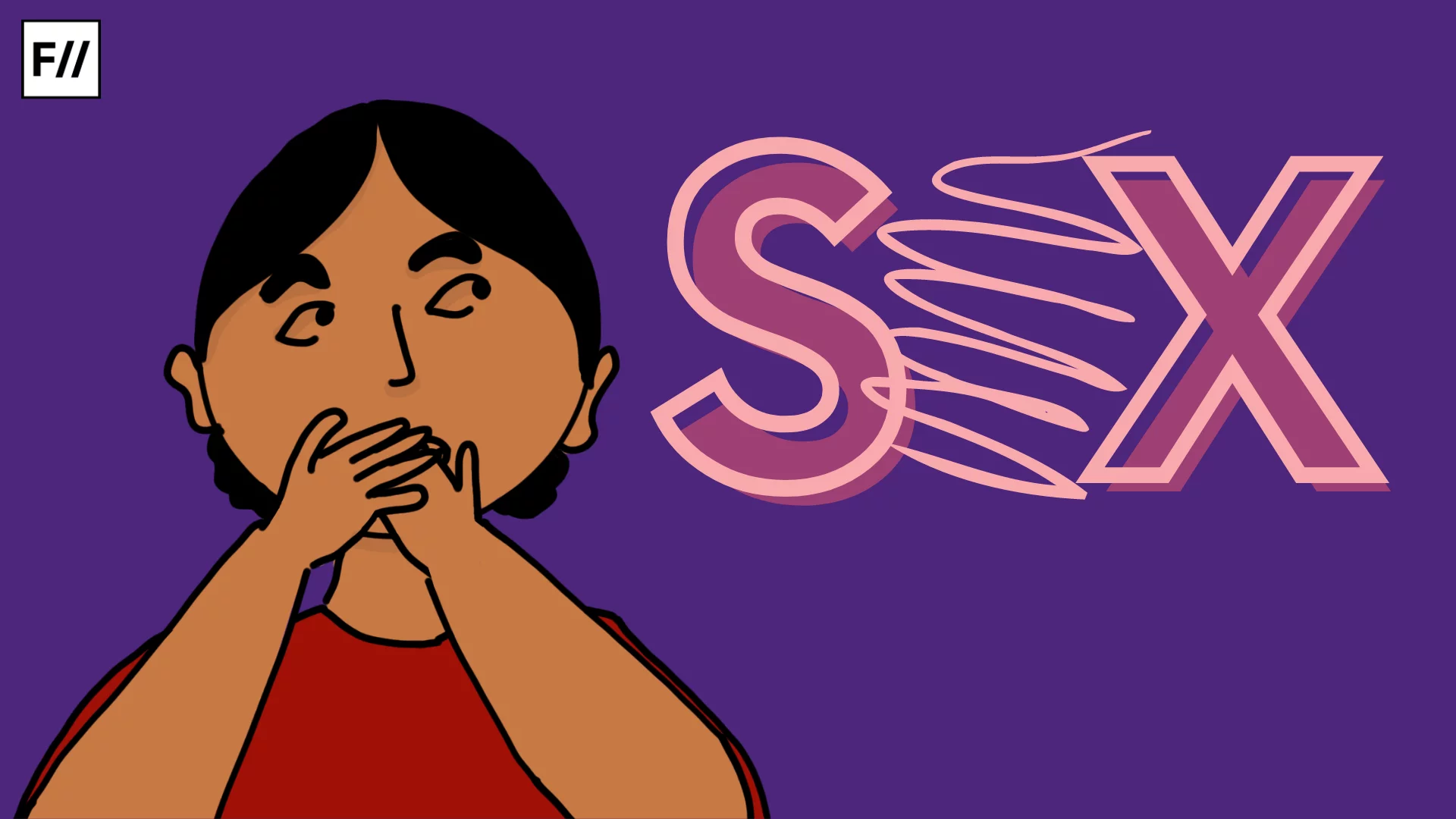
That’s the thing about having a circle of women to talk to. You realise how not alone you are in your experiences. You see that confusion is not a flaw. It’s part of the process.
Sometimes we talked about the boys. Other times, we talked about how our own bodies confused us. How we’d pretend we knew what we were doing even if we were terrified. How we’d feel guilty for wanting it—and then guilty for not wanting it. How we didn’t even know if we were allowed to talk about pleasure without sounding like that kind of girl.
But every conversation chipped away at that silence. Every shared story made the topic a little less scary. Every ‘same omg SAME‘ helped us breathe a little easier.
It wasn’t always deep or profound. Sometimes it was just chaotic. But it was ours. We didn’t need diagrams or ten-step articles to validate us. We had each other. And there is so much joy in that, joy in learning together—about body image, kinks, contraception, emotional labor, period sex, masturbation and the very real struggle of finding a non-judgmental gynecologist.
We even created a safe language. We’d call sex ‘tea‘ or ‘kya hua tha?‘ We had code names for crushes. We had emojis for risky texts, or sexual texts, haha!
We even created a safe language. We’d call sex ‘tea‘ or ‘kya hua tha?‘ We had code names for crushes. We had emojis for risky texts, or sexual texts, haha! We had backup plans, emergency texts, and judgment-free zones.
We joked about starting a podcast titled “Sex-Ed They Never Gave Us”—but honestly, we already had one. Ours just ran on voice notes, spontaneous 1 AM confessions, and emotional check-ins after bad decisions.
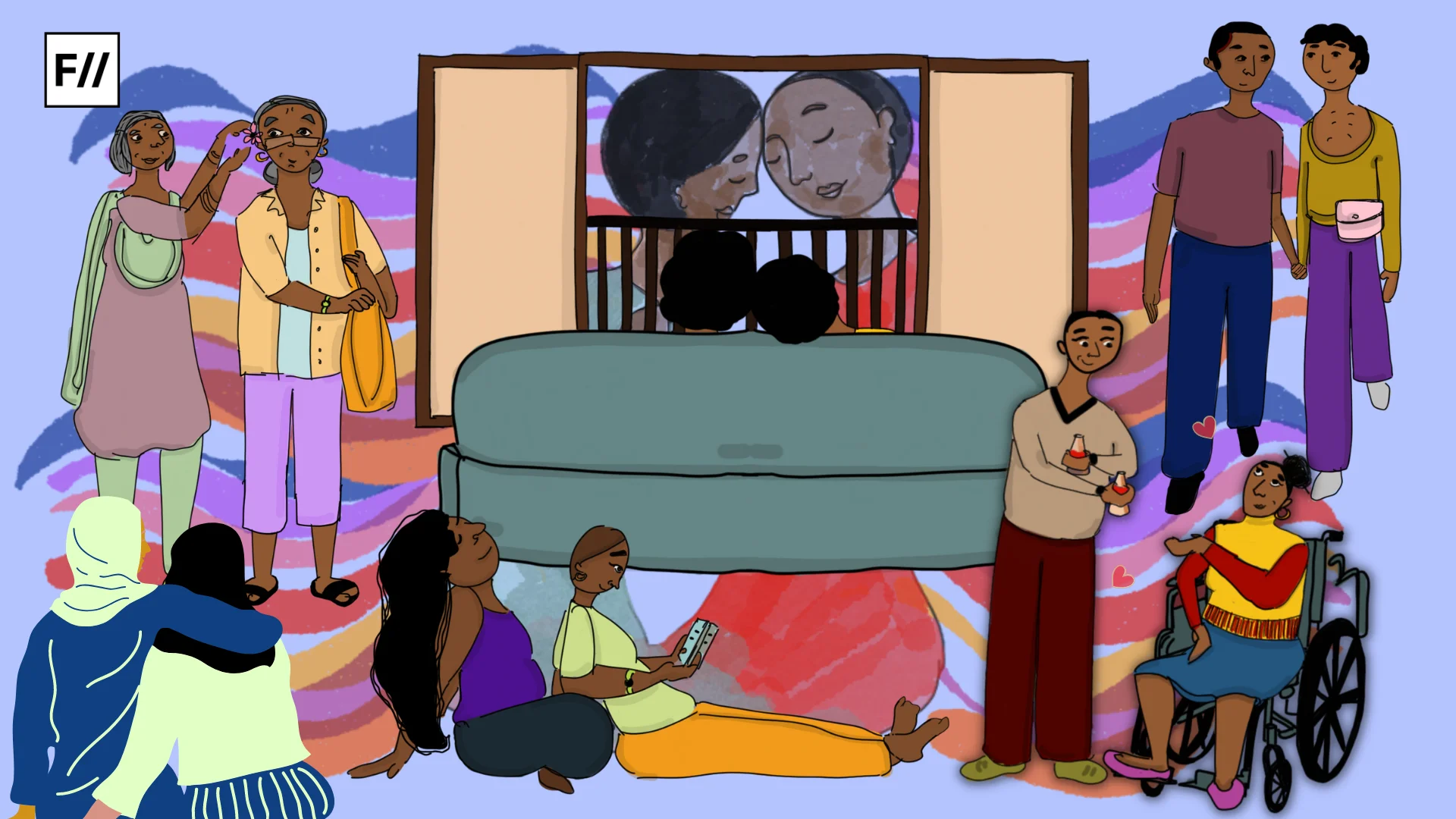
Looking back, I realise: these weren’t just talks. They were acts of resistance. We were reclaiming our narratives. We were building our own knowledge systems. We were healing ourselves because shame grows in silence and we were done being silent.
We were loud.
We were curious.
We were sometimes wrong.
But we were learning.
And that’s not small.
That’s not silly.
That’s radical.
We didn’t know we were starting a revolution. But we did.
And if you ask me, that’s where feminism lives too: in girls talking about sex without shame, in refusing silence, in choosing connection and in daring to say it out loud.
And one day, maybe we’ll speak without the ‘Shhh…‘ But until then, we whisper. And we laugh. And we love. And that’s joy. That’s freedom for us!
About the author(s)
Anushka Bharadwaj is a journalism graduate from SCMC Pune. She is an intersectional feminist with a deep interest in gender, caste, politics, and mental health. When she’s not writing or reading, she’s usually found lost in poetry, dancing to her favourite songs, or discovering new music—always reflecting on the world through stories.
